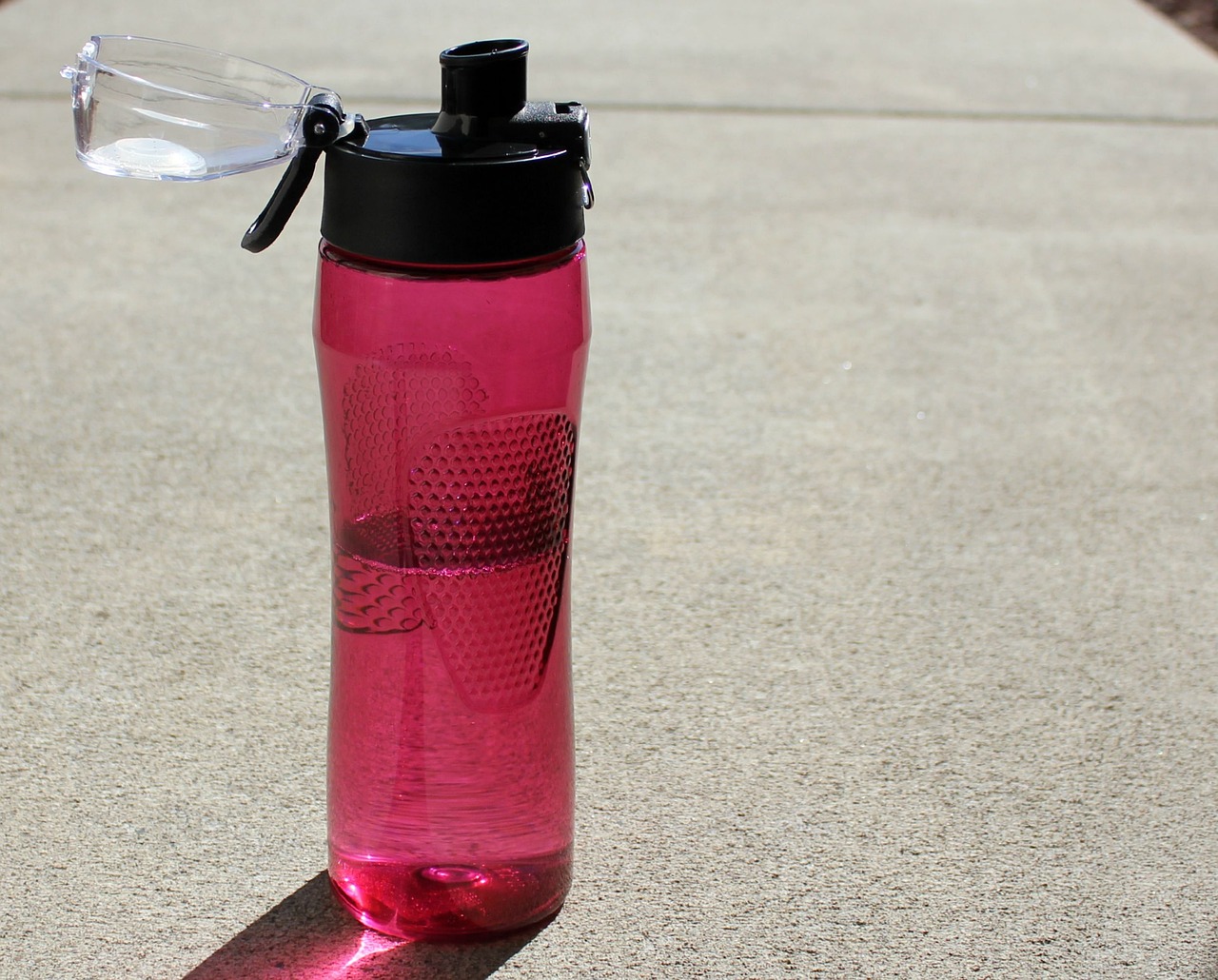
How Important Is Hydration For Maintaining Lumbar Spine Health?
Have you ever considered how important hydration is for maintaining the health of your lumbar spine? It may come as a surprise, but staying properly hydrated is crucial for the well-being of your lower back. In this article, we will explore the significance of hydration and its direct impact on the health and function of the lumbar spine. So, grab a glass of water and let’s dive into the fascinating world of spinal health!

This image is property of pixabay.com.
Understanding the Lumbar Spine
The lumbar spine, also known as the lower back, is a crucial part of our body’s structure. It consists of five vertebrae (L1-L5) that support the weight of the upper body and allow us to perform various movements, such as bending, twisting, and lifting. Understanding the anatomy and function of the lumbar spine is essential for maintaining its health and preventing potential problems.
Anatomy of the Lumbar Spine
The lumbar spine is located between the thoracic spine (mid-back) and the sacrum (tailbone). Each lumbar vertebra has a sturdy body that supports the weight of the upper body and provides stability. The vertebrae are connected by intervertebral discs, which act as shock absorbers and allow flexibility. The spinal cord runs through the spinal canal, protected by the vertebral column, and nerves branch out from the spinal cord to various parts of the body.
Function of the Lumbar Spine
The lumbar spine plays a vital role in maintaining posture and allowing movement. It provides stability during activities like walking, running, and lifting. The intervertebral discs between the vertebrae allow the spine to flex and extend. The facet joints, located at the back of the vertebrae, enable twisting and bending motions. Strong muscles and ligaments surround the lumbar spine, providing support and protecting it from injury.
Importance of Hydration
Water is essential for the overall functioning of our bodies, and maintaining proper hydration is crucial for the health of our lumbar spine. Dehydration can have significant effects on the spine’s well-being, including the intervertebral discs and spinal fluid.
Effects of Dehydration on the Spine
When you don’t drink enough water, your body becomes dehydrated. This dehydration affects the entire body, including the spine. Without adequate hydration, the intervertebral discs can become compressed, leading to decreased flexibility and increased risk of injury. Dehydration can also contribute to muscle cramps and spasms, which can further strain the lumbar spine.
Role of Water in Spinal Discs
The intervertebral discs in the lumbar spine are predominantly composed of water. These discs act as cushions between the vertebrae, absorbing shock and allowing smooth movements. When your body is well-hydrated, these discs maintain their water content, providing optimal support and flexibility to the lumbar spine. In contrast, dehydration can cause the discs to lose water and become less effective at their job, increasing the risk of pain and injury.
Hydration and Spinal Fluid
Proper hydration also affects the spinal fluid, which surrounds and nourishes the spinal cord. Spinal fluid helps protect the spinal cord from injury and allows the transmission of nerve signals. When you are dehydrated, the volume of spinal fluid can decrease, putting additional stress on the spinal cord and nerves. This can lead to discomfort and affect the overall health of your lumbar spine.
Implications of Poor Hydration on Lumbar Spine Health
Poor hydration can have severe implications on the health of your lumbar spine. It can increase the risk of disc degeneration, herniated discs, muscle spasms, and overall back pain. Additionally, dehydration can slow down the body’s healing process, making it more difficult to recover from lumbar spine injuries. Maintaining proper hydration is essential for preventing these problems and ensuring the long-term health of your lumbar spine.
Maintaining Hydration
Now that you understand the importance of hydration for lumbar spine health, let’s explore how you can maintain proper hydration levels in your daily life.
How Much Water Should You Drink?
The amount of water you should drink daily depends on various factors, such as your age, weight, activity level, and climate. As a general guideline, it is recommended to drink at least eight 8-ounce glasses of water per day, which is about 2 liters or half a gallon. However, individual needs may vary, so it is essential to listen to your body’s signals and adjust your water intake accordingly.
Factors Affecting Water Requirements
Certain factors can increase your body’s water requirements. These include physical activity, hot weather, high altitudes, pregnancy, breastfeeding, and certain medical conditions. When engaging in physical activity or being exposed to heat or high altitudes, you should increase your water intake to compensate for the additional fluid loss through sweat and respiration. Similarly, pregnant women and breastfeeding mothers require extra fluids to support their body’s needs.
Tips for Staying Hydrated
To maintain proper hydration, consider the following tips:
- Carry a water bottle with you throughout the day to remind yourself to drink water regularly. Sip on water even when you don’t feel thirsty.
- Set reminders or use mobile apps to track your water intake and ensure you meet your daily goals.
- Flavor water with fresh fruits or herbs to enhance its taste and make it more enjoyable to drink.
- Drink water before, during, and after exercise to stay hydrated and support your muscles and joints.
- Limit the consumption of dehydrating beverages such as alcohol and caffeinated drinks. These can increase fluid loss and contribute to dehydration.
Hydration and Physical Activity
Staying hydrated is particularly crucial during physical activity. When you exercise, your body loses water through sweat, and it is essential to replenish these fluids to maintain your performance and prevent dehydration. Be sure to drink water before, during, and after your workouts. If you engage in intense or prolonged exercise, consider consuming beverages that contain electrolytes to replace the minerals lost through sweat.
Dietary Considerations
While water is the primary source of hydration, it is essential to maintain a balanced diet for overall health and to support the hydration needs of your lumbar spine. Certain foods have higher water content and can contribute to your overall hydration levels.
Importance of Balanced Nutrition
A well-balanced diet provides essential vitamins, minerals, and nutrients for your body’s optimal functioning. Nutrients like calcium, magnesium, and vitamins D and K are particularly important for maintaining healthy bones and supporting the structure of your lumbar spine. Additionally, a balanced diet can help control inflammation, promote tissue repair, and boost your immune system, all of which are essential for spine health.
Healthy Foods for Hydration
Including foods with high water content in your diet can contribute to your overall hydration. Some examples of hydrating foods include:
- Fruits: Watermelon, strawberries, oranges, and grapes are rich in water and provide essential vitamins and antioxidants that support overall health.
- Vegetables: Cucumbers, lettuce, bell peppers, and zucchini have high water content and provide fiber, vitamins, and minerals.
- Soups and broths: Consuming soups or broths made from water-based vegetables can increase your fluid intake and provide additional nutrients.
- Smoothies and juices: Blending or juicing fruits and vegetables can not only increase your water intake but also provide a concentrated source of nutrients.
Foods to Avoid or Limit
Certain foods and beverages can have a dehydrating effect on your body and should be consumed in moderation:
- Caffeinated drinks: Coffee, tea, and energy drinks can act as diuretics and increase fluid loss through urine.
- Alcoholic beverages: Alcohol can dehydrate your body and affect your body’s ability to absorb essential nutrients.
- Salty and processed foods: Foods high in sodium can contribute to water retention and disrupt the balance of fluids in your body.
- Sugary drinks and snacks: High sugar content can increase inflammation and negatively impact your overall health.
Maintaining a well-balanced diet and being mindful of your fluid intake can significantly contribute to the health and hydration of your lumbar spine.

This image is property of pixabay.com.
The Link between Hydration and Back Pain
Now that we understand the importance of hydration for overall lumbar spine health, let’s explore the specific link between hydration and back pain.
Hydration and Herniated Discs
Herniated discs occur when the inner core of an intervertebral disc pushes out through the outer layer, placing pressure on nearby nerves. Proper hydration plays a crucial role in the prevention and management of herniated discs. When the discs are well-hydrated, they maintain their thickness and elasticity, reducing the risk of herniation. On the other hand, dehydration can cause the discs to lose water content and become more susceptible to damage, increasing the likelihood of disc herniation and associated back pain.
Dehydration and Joint Stiffness
Dehydration can also contribute to joint stiffness, including the facet joints in the lumbar spine. These joints allow movement and flexibility in the vertebrae. When you are dehydrated, the cartilage that covers the joint surfaces can become dry and less flexible. This can lead to stiffness, decreased range of motion, and increased risk of injury. Proper hydration helps maintain the lubrication of these joints and supports their smooth functioning.
Connection between Dehydration and Chronic Back Pain
Chronic back pain can be debilitating and significantly impact your quality of life. Dehydration can contribute to the development or exacerbation of chronic back pain. When your body lacks adequate hydration, the intervertebral discs lose their shock-absorbing properties and become more susceptible to wear and tear. The spinal joints may also become stiff and less mobile, leading to pain and discomfort. By maintaining proper hydration, you can help reduce the risk of chronic back pain and support the health of your lumbar spine.
Hydration as a Preventive Measure
Prevention is always better than cure. By prioritizing hydration, you can take a proactive approach to maintaining the health of your lumbar spine and preventing potential problems. Regularly drinking water and staying hydrated can contribute to the proper functioning of the intervertebral discs, spinal joints, and surrounding tissues. It can also support the overall alignment, flexibility, and strength of your lumbar spine, reducing the risk of injuries and chronic pain.
Hydration for Disc Health
As mentioned earlier, the intervertebral discs in the lumbar spine rely on proper hydration for their optimal functioning and health. Let’s delve deeper into the specific role of water in disc health and the effects of dehydration on disc degeneration.
Role of Water in Disc Regeneration
The intervertebral discs in the lumbar spine are avascular structures, meaning they do not have their own blood supply. Instead, these discs rely on diffusion to obtain nutrients and eliminate waste products. Water plays a vital role in this process by facilitating the exchange of fluids and nutrients within the discs. When you are well-hydrated, the discs maintain their water content, ensuring optimal nutrient supply for disc regeneration and repair.
Effect of Dehydration on Disc Degeneration
Dehydration can have detrimental effects on the health of your intervertebral discs, leading to disc degeneration. When the discs lose water content due to dehydration, their ability to absorb shock and support the spinal column decreases. This can result in increased pressure on the surrounding structures, including the nerves, causing pain and discomfort. Over time, ongoing dehydration can contribute to the progressive degeneration of the discs, leading to chronic back pain and other spine-related issues.
Benefits of Proper Hydration for Disc Health
Maintaining proper hydration has several benefits for the health of your intervertebral discs. By staying well-hydrated, you can help preserve the water content of the discs, ensuring their optimal shock-absorbing properties. Proper hydration also supports the overall health and integrity of the discs, promoting their ability to withstand daily stresses and preventing premature degeneration. By prioritizing hydration, you can significantly contribute to the long-term health and well-being of your lumbar spine.

This image is property of pixabay.com.
The Importance of Electrolytes
While water is crucial for maintaining hydration, we cannot overlook the importance of electrolytes. Electrolytes are minerals that play a vital role in maintaining fluid balance, nerve function, and muscle contractions.
Role of Electrolytes in Hydration
Electrolytes are essential for maintaining proper hydration as they help regulate the balance of fluids within our bodies. They act as electrically charged particles and are responsible for conducting electrical impulses, supporting muscle function, and maintaining cell membrane integrity. By balancing the level of electrolytes in your body, you improve your body’s ability to absorb and retain water, ensuring optimal hydration.
Effect of Electrolyte Imbalance on Spine Health
An imbalance in electrolyte levels can have negative effects on the health of your spine and the entire body. Imbalances, such as low levels of potassium, magnesium, or calcium, can contribute to muscle cramps, weakness, and spasms. These muscle issues can affect the stability and function of your lumbar spine, leading to discomfort and increased risk of injury. Maintaining proper electrolyte balance through a well-rounded diet and hydration is crucial for supporting spine health and overall well-being.
Natural Sources of Electrolytes
Various foods and beverages are rich sources of electrolytes, helping you maintain a balanced intake. Some examples of natural sources of electrolytes include:
- Bananas: High in potassium, bananas can help maintain proper muscle and nerve function.
- Spinach: This leafy green vegetable contains magnesium, an essential electrolyte for muscle and nerve health.
- Yogurt: A good source of calcium, which is vital for bone and muscle health.
- Coconut water: Known for its hydrating properties, coconut water contains electrolytes like potassium and magnesium.
- Seafood: Fish and shellfish, such as salmon, mackerel, and oysters, are rich in electrolytes like calcium, magnesium, and potassium.
By incorporating these natural sources of electrolytes into your diet, you can support your body’s hydration and maintain the health of your lumbar spine.
Hydration and Posture
Proper hydration not only supports the health of your lumbar spine but also plays a significant role in maintaining good posture. Let’s explore how hydration impacts spinal alignment and muscle fatigue.
Hydration’s Impact on Spinal Alignment
Proper spinal alignment is crucial for maintaining good posture and reducing the risk of back pain. When you are hydrated, the intervertebral discs in your spine maintain their volume and height, supporting the natural curvature of the spine. This, in turn, helps distribute the forces evenly throughout the spine, reducing the risk of abnormal stress on specific areas. Good spinal alignment promotes proper posture, leading to improved comfort, reduced muscle strain, and decreased likelihood of developing postural issues.
Maintaining Good Posture with Proper Hydration
By staying hydrated, you can support your efforts to maintain good posture. Adequate hydration helps keep the intervertebral discs hydrated and provides the necessary support for the spine’s natural curves. When your discs are well-hydrated, it is easier to maintain a neutral spine position, avoiding excessive rounding or arching. Additionally, hydration promotes the flexibility of muscles and joints, making it easier to maintain the correct posture. By combining proper hydration with regular posture exercises and ergonomic practices, you can significantly improve your spinal alignment and reduce the risk of postural problems.
Effect of Dehydration on Muscle Fatigue and Weakness
Muscle fatigue and weakness can affect your posture and overall spine health. Dehydration can exacerbate these issues, making it more challenging to maintain proper posture. When your body lacks water, muscle cells become less efficient at producing energy, leading to muscle fatigue. Fatigue can cause your muscles to weaken, compromising their ability to support your spine and maintain good posture. By ensuring proper hydration, you can help prevent muscle fatigue and weakness, supporting your spine’s stability and promoting optimal posture.

Specific Hydration Tips for Lumbar Spine Health
To maintain the health of your lumbar spine through proper hydration, consider the following specific tips:
Optimal Timing of Hydration
Instead of waiting until you feel thirsty, make a habit of drinking water at regular intervals throughout the day. Set reminders or use apps to ensure you are consistently hydrating. Start your day with a glass of water and drink water before meals, as it can aid digestion, absorption, and utilization of nutrients. Additionally, hydrate before, during, and after physical activity to replace fluids lost through sweat.
Maintaining Consistency in Fluid Intake
To ensure proper hydration, maintain a consistent fluid intake throughout the day. Sip on water or other hydrating beverages at regular intervals rather than consuming large amounts all at once. Consistency is key in maintaining hydration levels and supporting the health of your lumbar spine.
Hydration and Sleep Quality
Proper hydration can also contribute to improved sleep quality, which is crucial for the health of your lumbar spine. Dehydration can lead to discomfort and muscle cramps, making it challenging to get a restful night’s sleep. By staying hydrated, you can reduce the risk of these issues, promoting better sleep quality and allowing your body to repair and regenerate overnight.
Incorporating Hydration Habits into Daily Life
Make hydration a part of your daily routine by incorporating it into your daily habits and activities. Carry a reusable water bottle with you wherever you go, whether it’s to work, school, or running errands. Create reminders on your phone or computer to prompt you to drink water regularly. Make it a habit to include hydrating foods in your meals and snacks. By making hydration a priority and integrating it into your daily life, you can ensure the health of your lumbar spine and overall well-being.
Conclusion
Maintaining proper hydration is vital for the health of your lumbar spine. By understanding the anatomy and function of the lumbar spine, as well as the effects of dehydration, you can take proactive steps to support its well-being. Hydration plays a significant role in the health and function of the intervertebral discs, spinal fluid, and spinal alignment. It can prevent problems such as disc degeneration, herniated discs, muscle spasms, and chronic back pain. By prioritizing hydration, practicing proper posture, and maintaining a balanced diet, you can promote the long-term health and vitality of your lumbar spine. Remember to listen to your body’s signals, drink water regularly, and stay well-hydrated to support the health and well-being of your lumbar spine.









